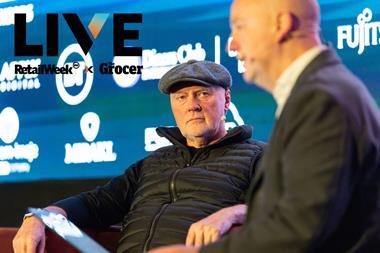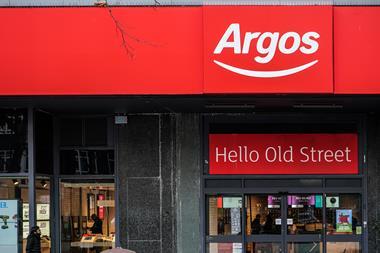
The grocery industry is facing an unprecedented challenge. In the past 12 months, over half companies in the FTSE personal care, drug and grocery stores sector have issued a profit warning, with 2022 warnings already exceeding 2021 levels, according to EY-Parthenon’s data. Cost and supply chain issues have prompted a remarkable 90% of these warnings so far this year, as increasingly squeezed consumers cut back and push back against price increases.
So, to what extent is it possible to pass on price increases in this environment, who is best placed to do this, and what strategies can companies employ?
‘K-shaped’ consumer profile
First, it’s important to look at the divergence in consumers’ fortunes. EY’s Future Consumer Index data shows shoppers aren’t all in the same boat. Rather than averaging towards the middle, consumer behaviour is drifting towards two extremes, creating a ‘K-shaped’ consumer profile. At one end are low-income consumers, among whom 44% expect their financial situation to worsen in 12 months. At the other end, just 15% of high-income consumers expect to be financially worse off in the next 12 months, while 61% are excited about spending money on things that will improve their lifestyle.
Therefore, while significant margin pressure is inevitable, businesses can mitigate the impact by thinking strategically, segmenting their market, and being smart about how and where they apply price increases.
Supplier pressure
For suppliers, the consequences of the war in Ukraine have increased the ability of farmers to push price changes through to manufacturers and supermarkets. While they are feeling the effects of increasing costs of feed, fuel, and fertiliser, the geopolitical situation is allowing some to switch into higher-margin products, even if their yields are lower.
But at the same time, supermarkets are working hard to limit the impact on customers and are pushing back on cost price increases with unprecedented levels of product delistings. We have recorded profit warnings from across the value chain, but there’s no doubt the parts of the fmcg sector being squeezed hardest are in the middle.
However, not all will be affected equally. Size and segment matter. It’s harder for supermarkets to delist the brands that matter most to their customers – at least for a sustained period – than it is to delist smaller, niche producers. Supermarkets have learned from the 2008 crisis: they know once customers leave, it’s very hard to get them to return. There is also divergence in price elasticity and, across the whole value chain, demand for premium products and ranges has held up well despite price increases.
Retailer messaging
For the major supermarkets, it’s vital to sustain a clear message around being here to support the consumer. This means minimising price increases in their value ranges, thinking strategically about how they use promotions and broader discounts, and using personalised pricing through loyalty platforms to ensure customers experience the right prices. Where there is more price elasticity is in premium ranges, the right consumers are prepared to pay more for better products.
This divergence makes it much harder to speak with one voice to the consumer. The financial crisis led to the rise of the now well-established discounters, who have an operational model and straightforward pricing message on low cost.
So in this environment, retailers need to be very clear on who their customers are and what they want – and understanding this at the most granular level possible. Already, some of the leading retailers are moving towards ‘segments of one’, where each customer has a distinct value sensitivity, and can be communicated with individually. The retailers that are able to serve all people as the individuals they are will thrive in this environment, but against this backdrop, a ‘one size fits all’ model will no longer work.



















No comments yet